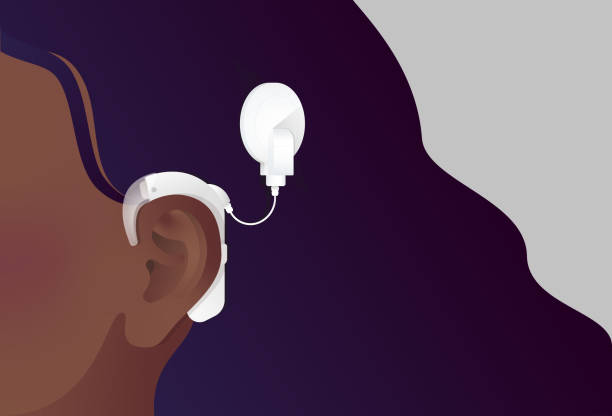
In honour of International Cochlear Implant Awareness Day on the 25th of February I thought I’d tell you all about them and how speech therapy can help Cochlear Implant users. The NHS website tells us that Cochlear Implants are for people with severe and permanent hearing loss that is NOT helped by hearing aids. Hearing aids simply amplify sounds. “[Cochlear Implants] work by turning sound into electrical signals and sending them to part of the inner ear called the cochlea. From here, the signals travel to the brain and are heard as sound.” (NHS, 2020).
Speech and Language Therapists often work as part of a multi-disciplinary team (MDT) with clients (both children and adults) before and after implantation. The MDT can include Consultant ENT surgeons, Clinical scientists (Audiology), Teachers of the deaf, Technicians, Rehabilitation Support Workers and, of course, Speech and Language Therapists.
I had the privilege of working at the Yorkshire Auditory Implant Service during my student placement years and it was a truly inspirational and eye-opening experience. We worked with clients to educate them about cochlear implants, the expected changes to their hearing, their speech and the way that they would interpret other people’s speech. Children often had a much smoother journey with implantation than adults. Adults often reported that speech sounded “robotic”, however with time and therapy they often reported improvements or grew accustomed to the robotic sound. A particular challenge for cochlear implant users can be using the telephone. We practiced using the telephone a lot during my time at the implant service. This part of therapy was so important for adults to be able to ring their bank, speak to friends and family on the phone and for use in emergencies. Most people had amazing results with their Cochlear Implants, but there were often huge challenges along the way for them. I’m always so inspired by our clients and their ability to bounce back and keep going in the face of adversity – it’s a great thing when our clients teach us more than we could ever possibly dream of teaching them.
If you or your family member are a Cochlear Implant user and you are looking for specialist support, then please do contact us here or get in touch with your specialist NHS team.
Link to NHS article: https://www.nhs.uk/conditions/hearing-aids-and-implants/#:~:text=A%20cochlear%20implant%20may%20be,and%20are%20heard%20as%20sound.




